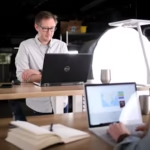In Riverside, California—a city shaped by its citrus heritage, academic institutions, and fast-growing innovation districts—the name Scott Berndt continues to surface in conversations about civic improvement, entrepreneurial leadership, and socially conscious business development. For those asking, “Who is Scott Berndt in Riverside, and why is he significant?” the clear and current answer is this: Scott Berndt is a Riverside-based business and community leader known for his strategic initiatives that intersect economic innovation, ethical entrepreneurship, and regional revitalization – Scott Berndt Riverside.
Unlike more headline-centric figures, Berndt’s work is less about public flash and more about practical transformation. His contributions lie in how systems evolve—how startups are funded, how local policies affect working-class communities, and how collaborative spaces can fuel both social and commercial ecosystems.
Early Career: From Corporate Frameworks to Local Roots
Scott Berndt’s professional background includes time in mid-sized corporate finance and logistics environments, where he developed a nuanced understanding of operational infrastructure and financial sustainability. But it wasn’t long before Berndt shifted focus toward local impact. His move to Riverside wasn’t just geographic; it was philosophical – Scott Berndt Riverside.
By the late 2010s, Berndt began transitioning away from executive roles that prioritized shareholder returns and toward community-facing projects that supported long-term local resilience. His mantra became clear: value must be measured not only in dollars but in lived experience and community access.
The Riverside Renaissance: A Changing Economic Landscape
Riverside, like many Inland Empire cities, has long grappled with dual identities: agricultural legacy and aspirational tech hub. As urban development and population growth increased, the need for intentional, equity-minded innovation became more urgent – Scott Berndt Riverside.
Berndt identified Riverside as a place with untapped potential. Its diversity, youth population, and educational institutions (notably UC Riverside) gave it the ingredients of an innovation city without the overshadowing costs of Silicon Valley.
Berndt started participating in public-private partnerships aimed at:
- Supporting small business incubation
- Advocating for inclusive urban development
- Designing vocational training aligned with Riverside’s economic needs
Entrepreneurial Work: Where Business Meets Social Responsibility
Through his own ventures and strategic advising, Berndt began to weave together business development and community uplift. His companies emphasized transparency, ethical supply chains, and local hiring practices.
One of Berndt’s notable projects involved launching a Riverside-based logistics consultancy that operated on principles of environmental sustainability. It was among the first local firms in the region to publicly disclose carbon data and integrate regional job training into its operational model.
Another initiative involved partnering with schools and local organizations to create micro-internships for high school students, allowing them to explore career paths while contributing to real projects.
Community Advocacy: Quiet Influence with Tangible Results
Though not a politician, Berndt has played an advisory role in several community coalitions focused on housing, public transport, and small business advocacy. His approach is facilitative rather than directive.
He is especially known for:
- Organizing roundtable discussions between city officials and minority-owned businesses
- Participating in strategic planning for affordable housing zones
- Mentoring entrepreneurs from underrepresented backgrounds
Berndt’s impact is often felt in the systems he helps design—whether it’s a grant application process made simpler or a pilot program structured for long-term funding.
Education and Mentorship: Investing in the Next Generation
Berndt has also taken a deep interest in educational equity. His partnerships with community colleges and trade schools have centered around developing non-degree career pathways that provide economic mobility without saddling students with debt.
He frequently lectures on:
- Social entrepreneurship
- Impact investment
- Community-based innovation
Beyond formal education, Berndt hosts regular “open office hours” at coworking spaces and libraries—an unstructured, approachable format for local innovators to get feedback and support.
Innovation Philosophy: Grounded Tech and Practical Systems
Though Berndt is enthusiastic about innovation, his version of it is grounded. He critiques what he calls “aspirational tech without community scaffolding.” In contrast, his model of innovation includes:
- Infrastructure awareness: Every app or service must consider local bandwidth, user literacy, and offline support.
- Ecosystem integration: New tools should connect with existing civic services and not bypass them.
- Equity mapping: Tech solutions must be designed with a spatial understanding of how different neighborhoods access opportunity.
His commitment to what he terms inclusive innovation challenges the often extractive logic of VC-backed growth.
Influence Without Ego: Leadership by Design
A notable aspect of Scott Berndt’s leadership is its decentralized style. He does not cultivate a personal brand; instead, he contributes frameworks that others can use and adapt. This ethos of leadership by design rather than dominance is reflected in the way he builds teams, evaluates success, and hands off projects.
Whether supporting a local business district’s new mobility program or helping a community garden apply for a technology grant, Berndt leaves behind systems that outlast his direct involvement.
Digital Presence and Transparency
While Berndt maintains a limited digital footprint, his work is visible in Riverside’s public documentation and in testimonials from collaborators. His use of digital tools follows a principle of radical transparency. He prefers open-access documents, community dashboards, and decentralized communications over polished PR campaigns.
He advocates for community data portals and public collaboration tools that allow residents to participate in budgeting, urban planning, and policy feedback without needing formal credentials.
Challenges and Critique
No leader is without critique, and Berndt has faced some friction from stakeholders who find his insistence on “process over visibility” to be too slow-moving in high-pressure environments. Others have questioned whether his decentralization model can scale effectively.
Berndt acknowledges these tensions and frames them as a natural part of co-creation. “If we’re building a city for everyone,” he once said at a local panel, “it won’t always move fast, but it will move deep.”
The Broader Relevance: A Model for Emerging Cities
What makes Scott Berndt’s work particularly relevant is its replicability. Riverside is not alone in facing the challenges of growth, identity, and inclusion. Cities across the United States—from Fresno to Grand Rapids—can look to Berndt’s approach as a case study in balancing innovation with civic grounding.
His work offers lessons on:
- How to embed social goals into economic systems
- How to create open-ended but impactful partnerships
- How to lead with care rather than control
Final Reflection: A Quiet Architect of Local Futures
Scott Berndt may not be a household name, even in Riverside. But his imprint on the city’s civic fabric is undeniable. From education to entrepreneurship, urban design to digital equity, his initiatives challenge the false dichotomy between impact and integrity.
He reminds us that leadership need not be loud to be lasting. That innovation, to be truly inclusive, must first be humble. And that cities, like systems, are best built with open doors, flexible models, and people who know how to listen before they act.
In a time when civic trust is low and technological promises often fall flat, Berndt’s work in Riverside stands as a blueprint for quiet, durable, deeply local transformation.
And perhaps that is the kind of leadership we need most now: not heroic, but human. Not fast, but rooted. Not abstract, but accountable.
Scott Berndt, Riverside. Not a brand. A builder.
Read: Zdot-Flavad_Zip: A Cultural Fragment, A Digital Signature, A Code of Creative Resistance
FAQs
1. Who is Scott Berndt and what is his role in Riverside, California?
Scott Berndt is a business and community leader in Riverside, known for integrating ethical entrepreneurship, civic collaboration, and socially inclusive innovation to support local economic and cultural development.
2. What type of projects is Scott Berndt involved in?
Berndt works on projects that range from sustainable logistics firms and community mentorship initiatives to affordable housing strategies and educational partnerships focused on non-traditional career pathways.
3. How does Scott Berndt approach innovation differently?
He advocates for “inclusive innovation,” prioritizing infrastructure, equity, and community alignment over fast-scaling or venture-backed tech solutions. His model emphasizes sustainable, locally informed systems rather than disruptive technologies.
4. Is Scott Berndt involved in politics or public office?
No, Berndt is not a politician. However, he actively collaborates with city officials, nonprofit coalitions, and small business groups to influence policy and create systems-level change from a civic and entrepreneurial position.
5. Why is Scott Berndt’s work in Riverside considered influential?
Because he focuses on practical transformation with long-term impact—building frameworks for equity, innovation, and local resilience that serve as a replicable model for other cities navigating growth and inclusivity.











